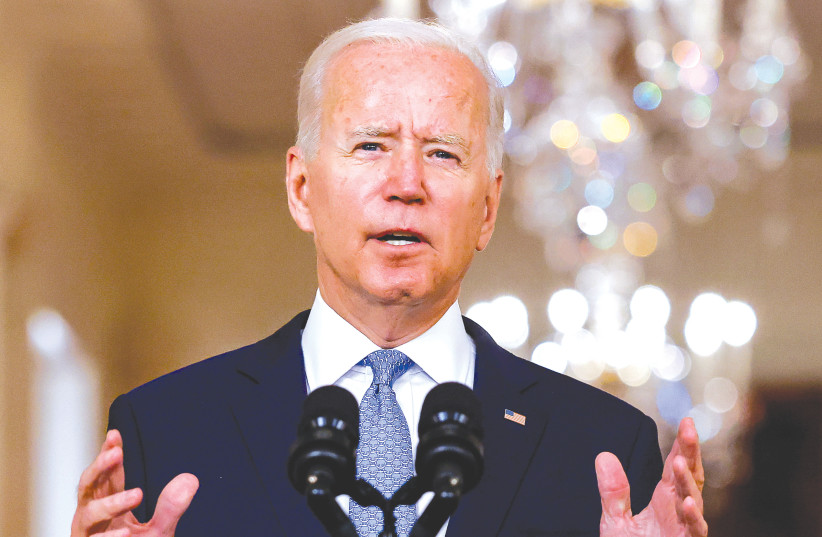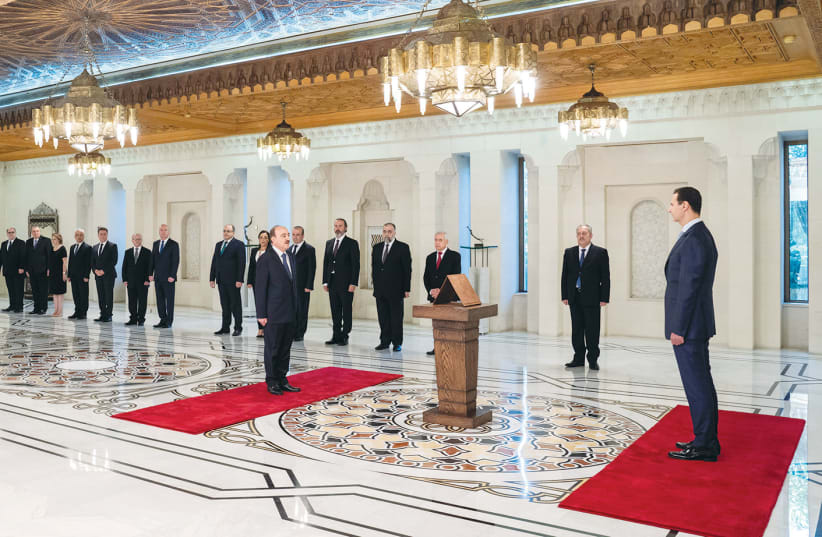The resumption of talks in Vienna to revive the Iran nuclear deal and regarding Iran’s progress toward obtaining nuclear weapons, alongside the change of government and the accusations slung between Prime Minister Naftali Bennett and his predecessor Benjamin Netanyahu, have thrown public debate on the issue back 10 years. Netanyahu blames Bennett for “wasting six months and intending to contain Iran’s nuclear capabilities.” Bennett, on the other hand, blames Netanyahu for talking the talk, but not walking the walk.
Last week, Bennett and Foreign Minister Yair Lapid went public with a more radical stance and are now talking about Israel’s readiness and the possibility of engaging in a military operation, even without American support. In contrast, Minister of Defense Benny Gantz has been talking about engaging in collaborative intelligence gathering with countries around the world in an effort to intensify pressure and sanctions against Iran. Concomitantly, Gantz is also actively leading efforts to bolster Israel’s readiness to attack.
Just as a decade ago, Israel’s prime minister was actively leading dramatic efforts in the Middle East; he is once again publicly sharpening Israel’s military capabilities, while relying on our security establishment to counterbalance Iran, as the rest of the world – led by the US – tautens pressure on Iran.
Israel’s refusal to accept Iran’s nuclear weapon capability as a fait accompli has always been widely accepted among all of Israel’s Zionist political parties. Bennett, Lapid and Gantz must ensure that this support remains stalwart, especially as we approach the home stretch.
Admittedly, this is a tad bit difficult when the leader of the opposition is not behaving graciously and refuses to accept updates from the prime minister, something he is required to by law. Bennett should, however, continue sending his military secretary to Netanyahu with updates and to keep communication channels intact.


These efforts have also become exponentially more difficult given that the Biden administration is not sufficiently organized and the US president’s approval rate is rapidly slipping, which is leading to a drop in his status throughout the world. Nonetheless, this is the challenge we are facing.
We must manage this crisis responsibly, with good judgment and with an iron fist in a velvet glove. There must be broad national agreement, and Bennett, Lapid and Gantz must consult with former prime ministers Ehud Barak, Netanyahu and Ehud Olmert, even if they need to take an anti-nausea pill before such meetings. In any case, we’re the ones financing their health expenses.
THE PEACE-LOVING State of Israel has never taken the first step on its own to engage in a peace initiative. These initiatives have always been launched by others: Sadat, Hussein, the Americans, the Saudis, the French, etc. The Jewish people, who are commanded “Seek peace and pursue it,” have not actually done anything to achieve this goal.
Showing initiative and daring, gaining experience and actively exploring opportunities to achieve peace has never been something we excelled at, for many reasons: the dark shadow cast by the Holocaust; the fact that we are surrounded by enemies on every border; the unilateral withdrawals that have never led to peace in any way, shape or form; political disagreements; and the fact that our borders are not finalized.
This is exactly why I agree with my colleague Alon Ben-David that Israel needs to engage in dialogue with Syria. And there is no better time than the present. Syria is currently battered and bruised from being trapped between Iran, Hezbollah and Russia. Its economy is in distress, and Israel could serve as a way not only to open the door to the US and to the repeal of the Caesar Act of 2019, but also to cooperation that could lead to economic improvements in their energy, health and agriculture sectors.
This might sound like an unattainable feat, but I think it’s possible and that we have an obligation at least to give it our best shot. Israel has nothing to lose from engaging in such an initiative, but we have so much to gain from it.
Removing Syria from the axis of evil would also resolve the threat on Israel on its northern border from Lebanon – two birds with one stone. And there is already broad national consensus that Israel should retain the Golan Heights, but that it should be settled and reinforced. Even the Americans have expressly recognized Israel’s right to sovereignty on the Golan. This is a matter that can be settled creatively. Trust me – it’s worth giving it a try. And if Assad gives us a cold shoulder, then at least we’ll have gotten some good PR and be seen as a country that is striving for peace.
Who could lead this initiative? My first choice would be France, with support from the US, Egypt and others. France has historically had political, cultural and economic influence in Syria and Lebanon, and would jump at a chance to assume a position of influence in the Middle East. And if this initiative were to succeed, I can guarantee that the Americans would offer to hold the signing ceremony on the North Lawn of the White House.
The author is a retired IDF brigadier general, an adviser for strategy and communications, former IDF spokesman, and adviser to prime ministers and defense ministers in Israel.
